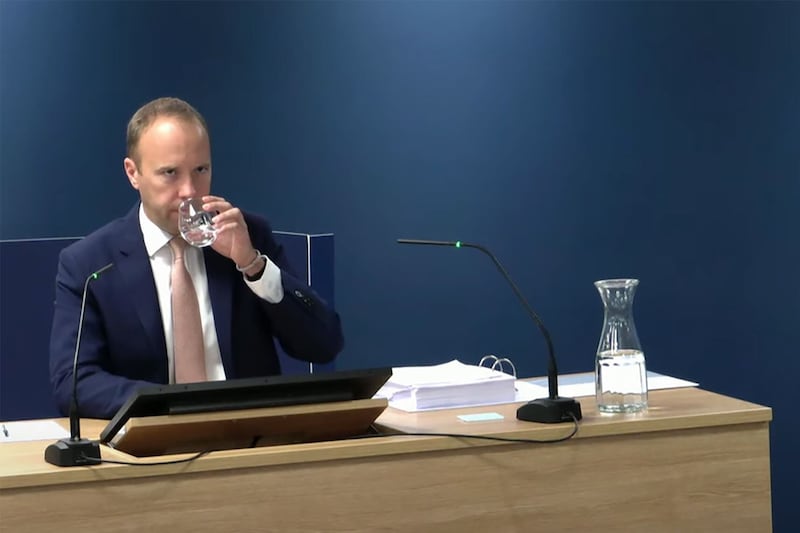Emergency departments are dealing with “so many” elderly patients who are not in the right place for the care they need, a Government minister said as she drew on her own experience being in hospitals with a broken ankle and sick relatives.
Health and social care minster Helen Whately indicated what she witnessed left her further motivated to help people “avoid these ins and outs of hospitals”.
The politician hobbled on crutches to give a speech at the NHS Confederation’s Health Beyond the Hospital conference in London on Wednesday, having suffered a broken ankle in a “nasty road accident” earlier this month.
She praised the South East Coast Ambulance for its care in getting her to the emergency department of William Harvey hospital in Kent, but said she had gained further insight into the situation on the healthcare front line.
In a question and answer session following a speech, she said: “I had my own very recent experiences, particularly of the emergency care pathway. I’ve also got several family members with various health problems at the moment so I’ve been spending quite a lot of time on a personal basis in hospitals and in the health system at the moment.”
Acknowledging that “of course you draw on your own experiences”, she added: “I think one of the things that I’ve seen through all of that is how hard it is for emergency departments with so many in fact frail, elderly patients who it’s not necessarily the right place for them to be.
“And I’ve spent hours, whether it was for my mum in an emergency department, looking round and knowing it’s so hard for so many of those people there who it’s so often not the best place to be.
“So for me I think that does really help motivate me on the importance of us trying to get the care right, and try and help people avoid these ins and outs of hospitals.”
"I wanted to be here today…because of the topic of today’s conference, #HealthBeyondtheHospital…It’s something I have wanted to talk about since the Prime Minister appointed me to the job."@Helen_Whately is speaking now at our conference pic.twitter.com/86dkMTsBPB
— NHS Confederation (@NHSConfed) September 27, 2023
She said the UK healthcare system “has developed very much around the acute hospital” and while they do “fantastic things”, it would be a “cultural change” to switch budget and resources more to out-of-hospital care.
“There’s quite a cultural shift that we need to do,” she said, adding that good data is needed to back up any diversion of spending from acute to community care.
In her earlier speech, she maintained she has always been a voice for parts of the system beyond hospital care.
She said: “People often talk to me about the NHS as if it’s the national hospital service, not the national health service, and when the chips are down, the focus tends to be on hospitals and what’s going on in them. I don’t let that happen on my watch. I am always the one who says ‘hold on, what about the rest of the system?’”
The minister’s comments came as independent research commissioned by the NHS Confederation suggested spending on community care could lead to a drop in accident and emergency footfall and ambulance callouts.
The research stated that for every £100 spent in the NHS community care sector, there is a £131 return on investment in acute sector savings – money that would have been spent providing care to patients in hospitals and across acute services.
The confederation, the membership organisation representing the healthcare system in England, Wales and Northern Ireland, said these savings would be as a result of reduced hospital admissions and fewer people being taken to hospital in an ambulance.
Matthew Taylor, chief executive of the NHS Confederation said: “This analysis shows what we have long suspected – that investing in community services not only helps to reduce hospital admissions and demand on ambulances, but that it also saves the NHS money.
“Successive governments have long held the ambition to shift more care out of hospitals and into the community, but this has never fully materialised. With NHS budgets under huge strain, this analysis shows why it is so important to finally deliver on this long-held ambition. It’s not only better for patients to be treated in or closer to their homes, but it’s also better for the taxpayer.”
He recognised that such a transition in spending “can’t happen overnight”, but added that “to place the NHS on a more sustainable footing over the long-term, then this is exactly the type of shift in resources that we need to deliver”.








